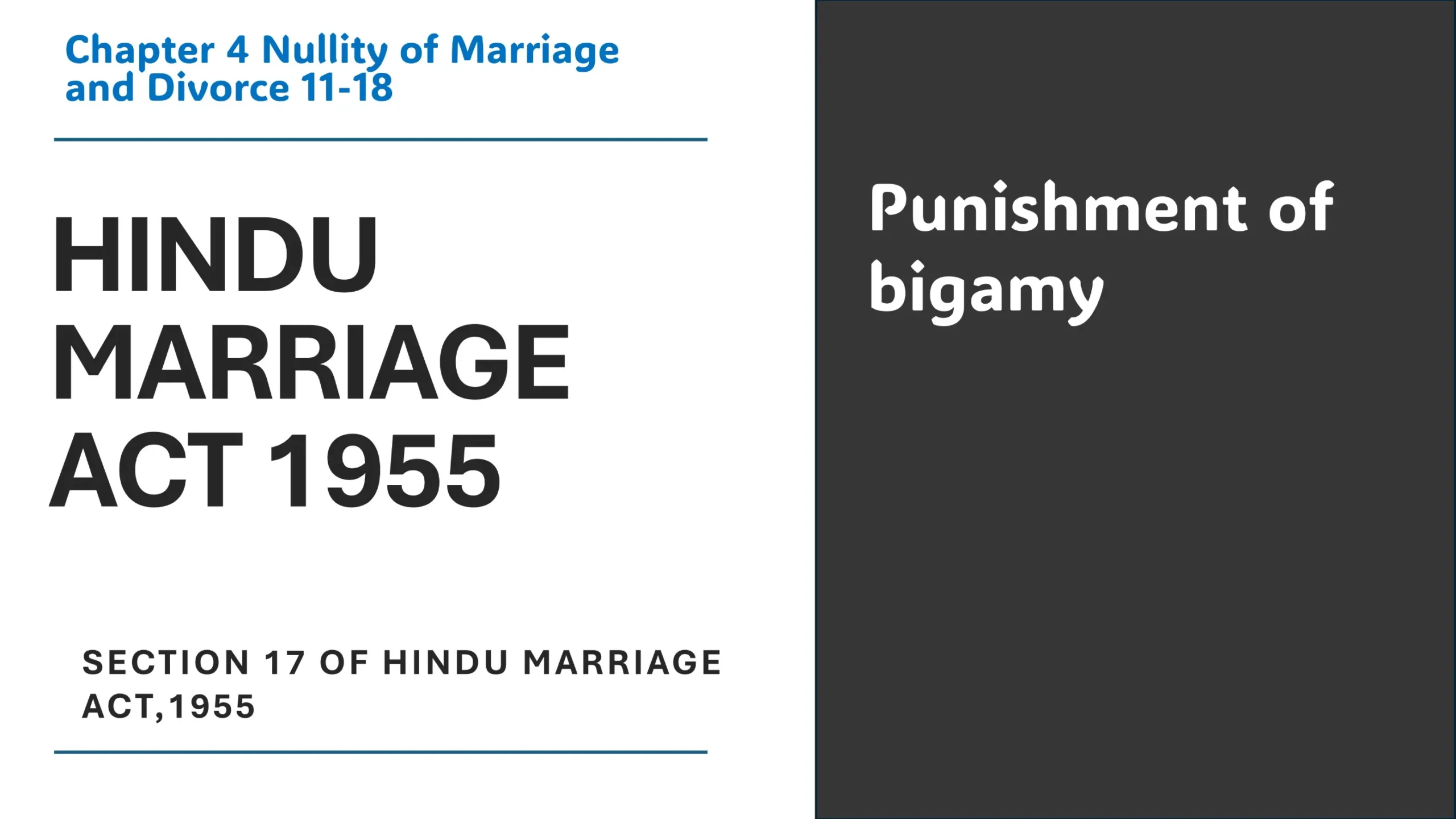Section 17 of Hindu Marriage Act 1955: Punishment of bigamy

Punishment of bigamy Hindu Marriage Act 1955
17. Punishment of Bigamy.- Any marriage between two Hindus solemnized after the commencement of this Act is void if at the date of such marriage either party had a husband or wife living; and the provisions of Sections 494 and 495 of the Indian Penal Code (45 of 1860) shall apply accordingly.
FAQ 1: What happens if a person gets married while their spouse is still alive under the Hindu Marriage Act, 1955?
Under Section 17 of the Hindu Marriage Act, if either party to the marriage is already married and has a living spouse at the time of a subsequent marriage, that second marriage is considered void. This means the marriage is legally invalid and does not have any legal recognition. The person committing bigamy can also be penalized under the Indian Penal Code.
FAQ 2: What are the legal consequences for someone committing bigamy under the Hindu Marriage Act, 1955?
If a person is found guilty of bigamy, the provisions of Sections 494 and 495 of the Indian Penal Code (IPC) apply. Specifically:
- Section 494 IPC: This section makes the offense of marrying again while the first spouse is still alive and the marriage is valid, punishable with imprisonment for up to 7 years and a fine.
- Section 495 IPC: This section extends the punishment to bigamy with concealment of the first marriage and imposes imprisonment for up to 10 years and a fine.